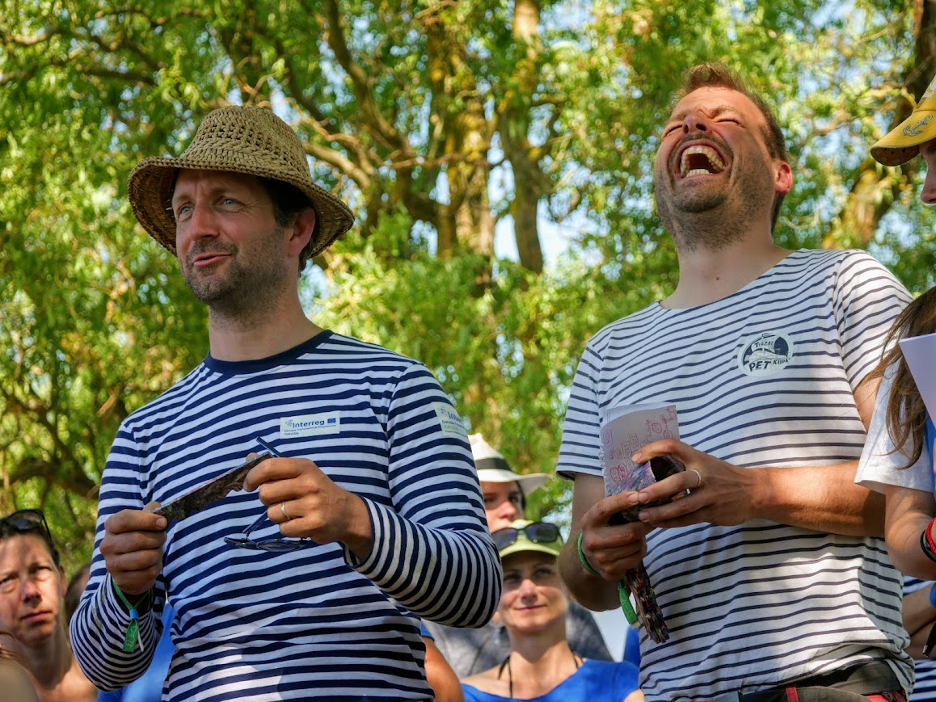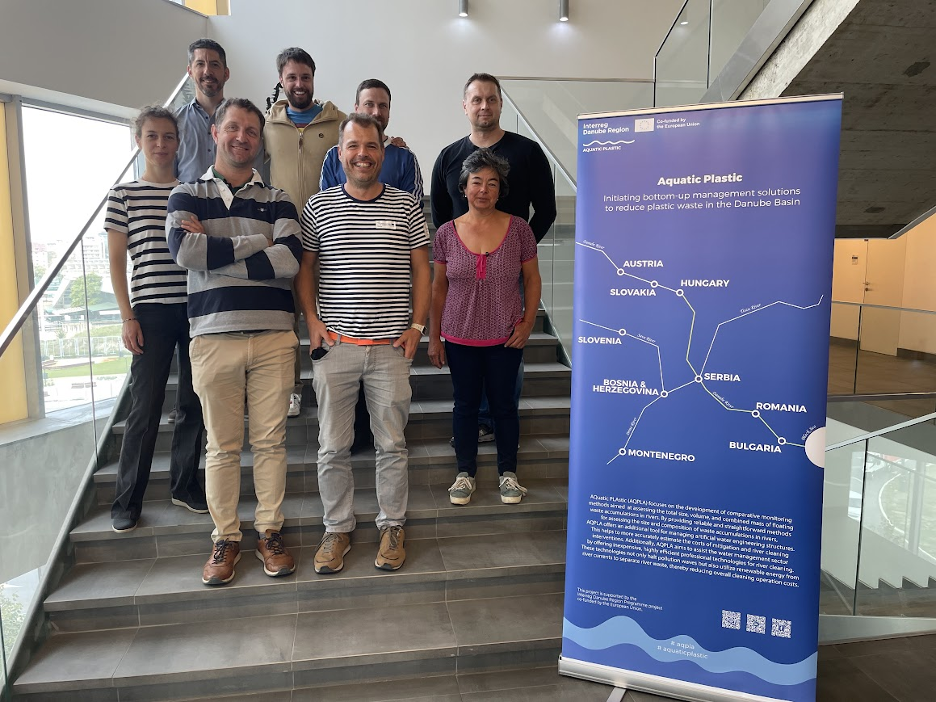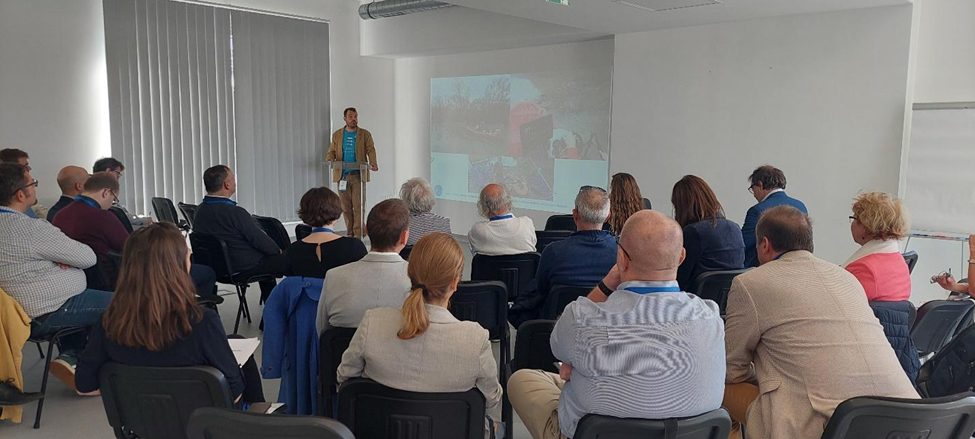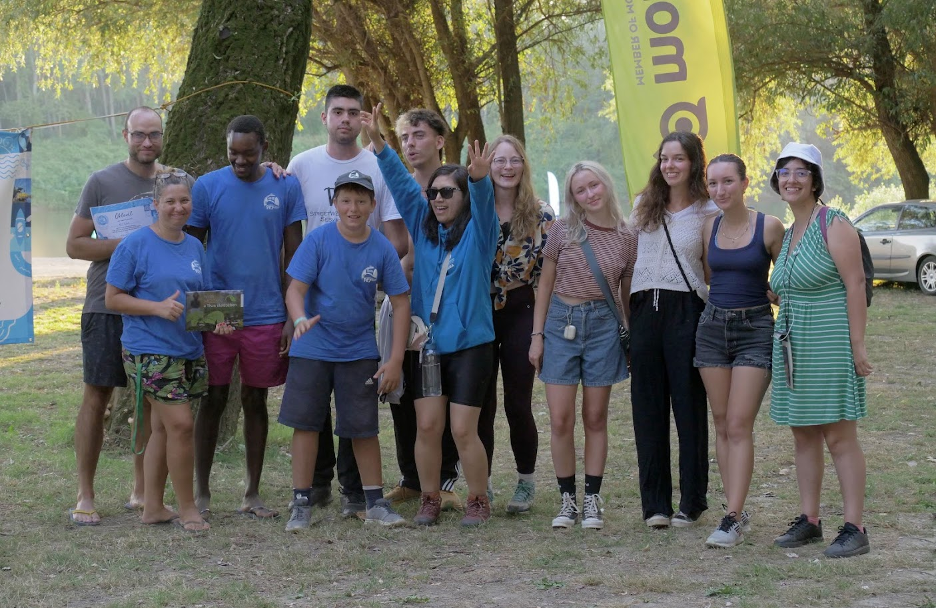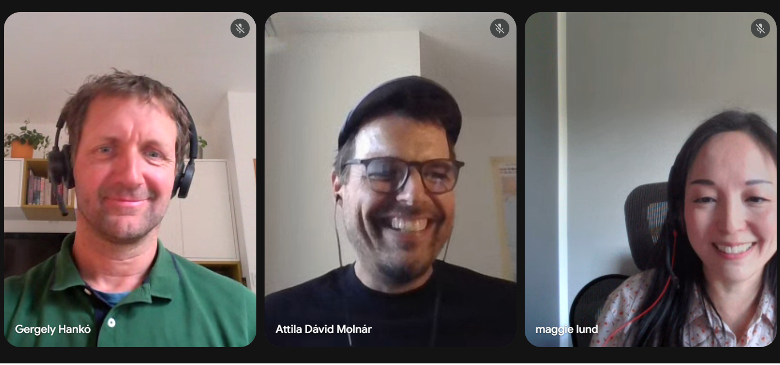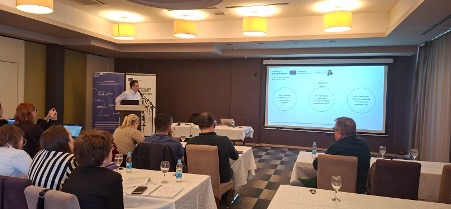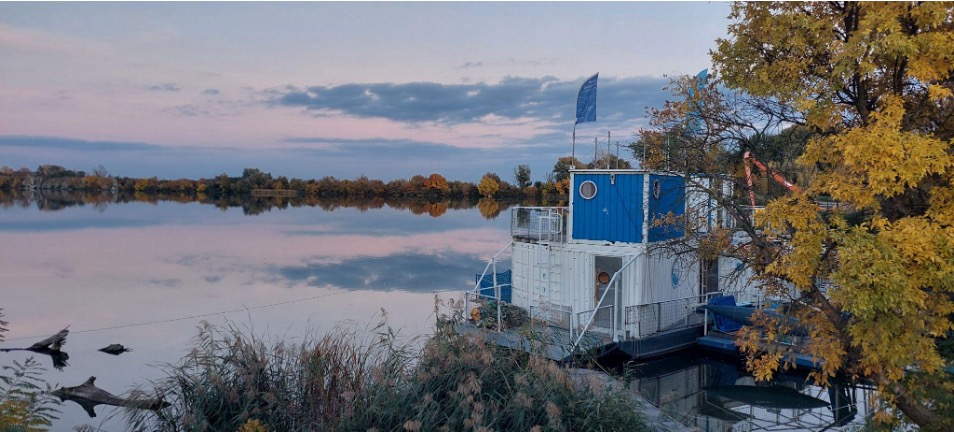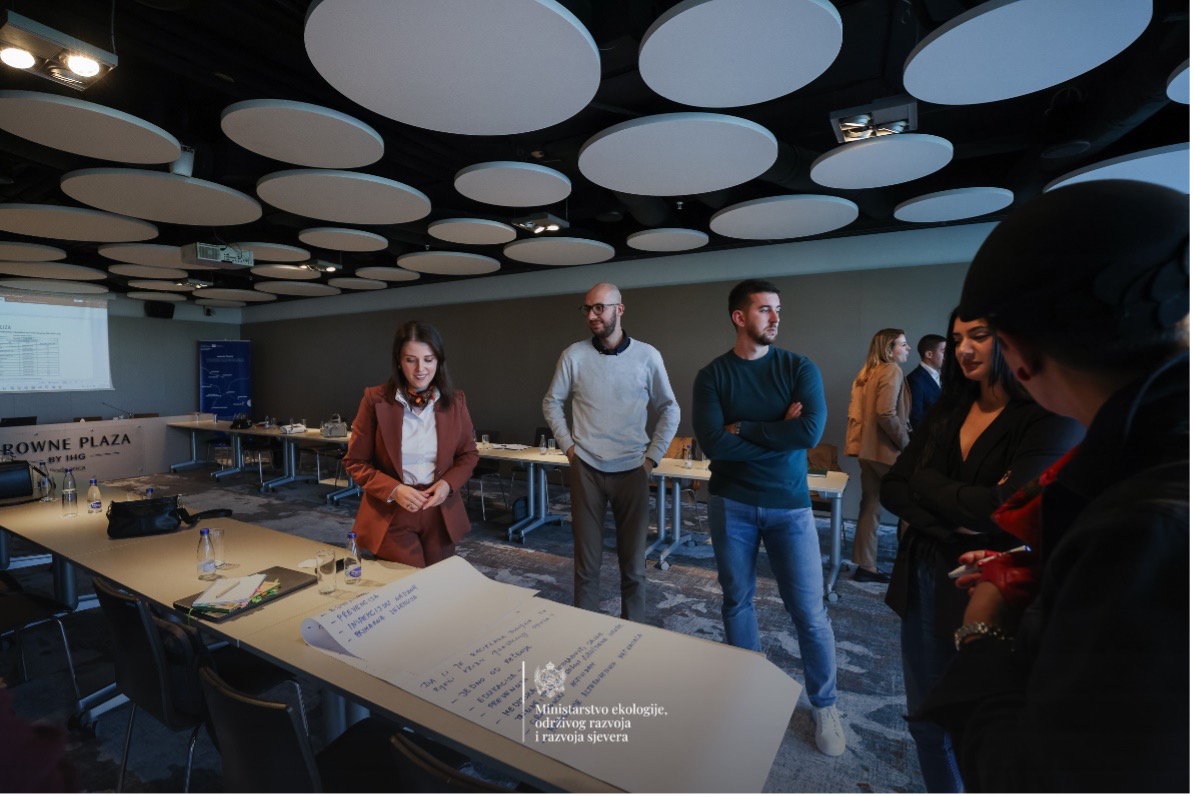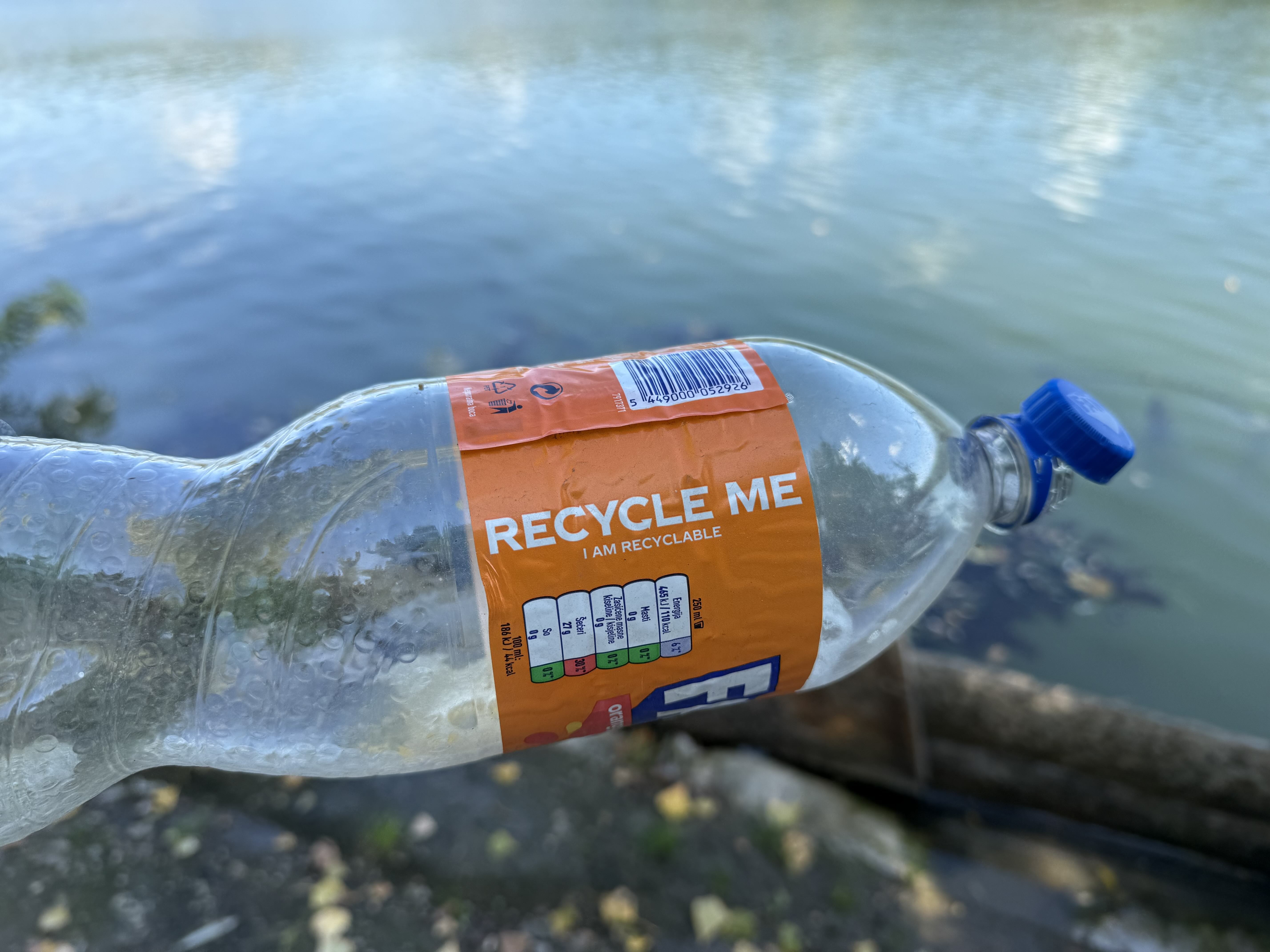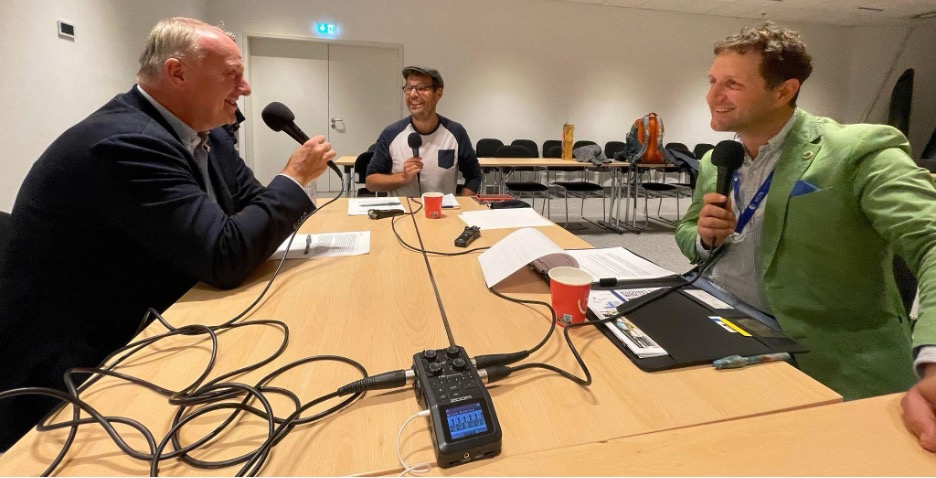
Aquatic Plastic Podcast #4
Riding the plastic tide: How a dutch recycler is cleaning up the world's waters - Bernard Merkx
The fourth episode of the Aquatic Plastic podcast takes listeners on an inspiring journey with Bernard Merkx, co-founder of the Waste Free Ocean Initiative. Drawing from his deep-rooted connection to the Dutch waterways, Merkx shares how his passion for the environment evolved into a mission to tackle plastic pollution in rivers and seas. From mobilizing fishermen to shaping EU policy, he reveals how waste can be transformed into opportunity—and why rethinking our relationship with water is more urgent than ever.
The power of community and policy
In the end, the episode offers a hopeful yet urgent message: the fight against plastic pollution isn’t lost, but it demands collective responsibility. From policymakers drafting smarter laws to individuals refusing single-use plastics, everyone has a role.
Bernard Merkx’s story is proof that progress is possible. It’s not just about cleaning rivers—it’s about changing mindsets, one bottle at a time.
From recycling plant to riverbank
Merkx began his journey in the recycling industry, gaining firsthand experience with the systems that handle society’s waste. But it wasn’t enough. He saw that while the technology existed to recycle plastic, the will to do so consistently—and effectively—was often lacking. That realization led him to co-found the Waste Free Ocean Initiative, an organization dedicated to reducing marine litter through hands-on collection efforts and strategic partnerships.
Waste Free Ocean takes a unique approach: partnering with local fishermen and communities to retrieve plastic waste directly from rivers and coastal areas. These recovered plastics are then recycled into usable products, from furniture to packaging. It’s a model that not only cleans the water but also creates economic value and public awareness.
Collaboration as a catalyst
One of the key themes of the episode is collaboration. Merkx highlights the importance of building alliances—not just with NGOs, but also with industries, governments, and everyday citizens. “No one can solve this alone,” he says. “But if everyone plays their part, change becomes possible.”
This collaborative spirit extends to shaping policy. Merkx has become an influential voice in European waste management, advocating for legislative changes that prioritize circular economy principles and stricter plastic regulation. His work emphasizes that innovation must be matched with political will.
A broader vision for water
The podcast also explores the broader implications of water pollution and mismanagement with guests Martin Kovacs and Michal Kravcik, who introduce listeners to the “new water paradigm.” This framework emphasizes the role of small water cycles—local systems of evaporation and precipitation that are disrupted by deforestation, urbanization, and pollution.
By restoring wetlands, promoting sustainable agriculture, and protecting natural landscapes, they argue, we can not only protect water quality but also influence regional climates. Their message aligns with Merkx’s: water issues are deeply interconnected with environmental, economic and social systems.
The power of community and policy
In the end, the episode offers a hopeful yet urgent message: the fight against plastic pollution isn’t lost, but it demands collective responsibility. From policymakers drafting smarter laws to individuals refusing single-use plastics, everyone has a role.
Bernard Merkx’s story is proof that progress is possible. It’s not just about cleaning rivers—it’s about changing mindsets, one bottle at a time.
Listen to the full episode of Aquatic Plastic to learn more about how innovation, community action, and a lifelong connection to water can help restore the health of our planet’s most vital ecosystems.
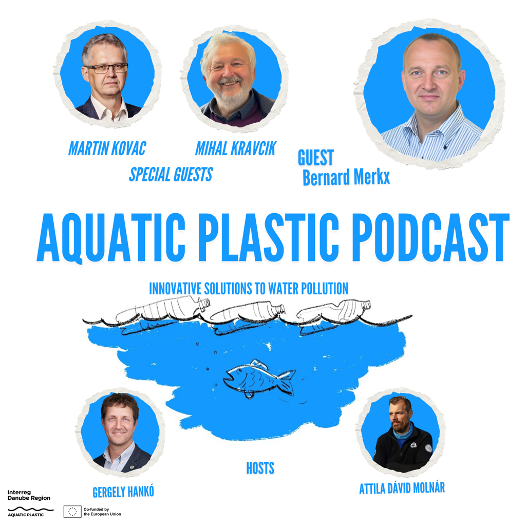
About Aquatic Plastic
Aquatic Plastic is brought to you by the Interreg Danube Region Programme, co-funded by the European Union. Operating within the world's most international river basin, the Aquatic Plastic Danube-Region Interreg project unites 33 organizations spanning 10 countries. Together, we are executing 19 pilot actions and developing 8 solutions aimed at preventing, reducing, and managing plastic pollution in the natural waterways of the Danube River Basin. How do we navigate through such diverse borders? Explore further by delving into our report, and begin following our journey on LinkedIn and other social media platforms.
CHAPTERS
00:00 Intro: Meet the hosts
Welcome to the episode featuring a recycling pioneer and his journey through plastics, rivers, and European legislation. Meet the hosts and discover the theme of the episode — a journey into the world of plastic pollution and solutions along Europe’s waterways.
00:53 Meet Bernard Merkx: The Plastic Pirate
"Doing nothing is not an option."
Introducing the guest: Bernard Merkx — entrepreneur, activist, and plastic recycling expert with a lifelong connection to rivers and sustainability.
03:12 A Career in Waste and Wisdom
"When I started 35+ years ago, there were no red carpets in recycling."
Bernard talks about his career, from student jobs in plastic factories to shaping European recycling policy.
05:14 Childhood by the River
"I remember seeing half cows floating in the river."
Personal memories from growing up in a polluted delta inspire a lifelong mission for cleaner waterways.
07:27 Dutch DNA: Living Below Sea Level
"The Dutch learn to live with the water. We respect the force of nature."
Reflections on Dutch resilience, water technology, and the impact of upstream pollution.
09:49 Legislation & the Power of Policy
"You need to find the right balance. Legislation is the key."
Bernard explains how policy-making can support recycling and environmental change — and why convincing lawmakers is half the battle.
11:54 Education & Experience: The Dutch Knife
"I’m not a technician. I’m a broad learner."
From polytechnic studies to becoming a sustainability Swiss (or Dutch) knife — Bernard’s unique path to becoming a circular economy leader.
15:07 Titles, Impact & Being a Friend
"My favorite title? Friend."
A down-to-earth philosophy on success, recognition, and the power of genuine connection.
19:51 Midway: The Wake-Up Call
"If you find rubbish in the middle of nowhere, then something is wrong."
Reflections on Chris Jordan’s haunting albatross photo and the global realization that plastic waste is out of control—even in the most remote places.
23:00 Global Wish: Close the Landfills
"If you want to make a change, close the landfills."
From European policy to refugee camps in the desert — how improper waste disposal leads to tragic consequences for nature and wildlife worldwide.
26:49 The Numbers Lie — But the Trash Is Real
"Even if it's half the number, it should not be there."
A critical look at the misuse of statistics in environmental reports and why the focus should shift from guessing quantities to stopping pollution at the source.
36:03 From waste to product
"We create circular stories from marine litter."
Waste Free Oceans works on transforming collected plastics into useful products like clothing hangers, pallets, and outdoor furniture.
40:32 From Trash to Innovation: Happy Seal Project
“We saw a mountain of fishing gear… My wife said, ‘Oh God, holiday is gone.’”
How an accidental discovery on holiday led to the creation of a major recycling initiative.
54:04 What’s Next: Mandatory Recycled Content
“We as a society need to invest in more capacity.”
Looking ahead to future EU legislation and what it means for recycling infrastructure and innovation.
01:00:24 Guest Time and Introduction to the New Water Paradigm
The hosts introduce Martin Kovacs and Mikhail Kravcik, experts in water management, to discuss the state of water cycles, the recent floods in Europe, and sustainable water management practices.
01:01:18 The Issue of Flooding and Drought
"...We have plenty of rain. We have plenty of water, right?"
Mikhail explains the paradox of extreme weather in the region, noting that while there’s plenty of rain, there’s also an issue with prolonged periods of dryness. This highlights the need to understand how water cycles work to prevent such extremes.
01:14:06 The Umbrella Experiment: Symbolizing Water Retention
"...we were all standing in front of a group photo with our umbrellas. And then you came out and suggested to turn our umbrellas upside down."
Martin explains the upside-down umbrella experiment, where turning an umbrella upside down can collect rainwater. This simple demonstration symbolizes the importance of retaining rainwater in urban spaces and encourages people to rethink water management in everyday life.
01:16:36 Game Time and saying goodbye
News & Events
Read the most recent updates and explore the upcoming events.

